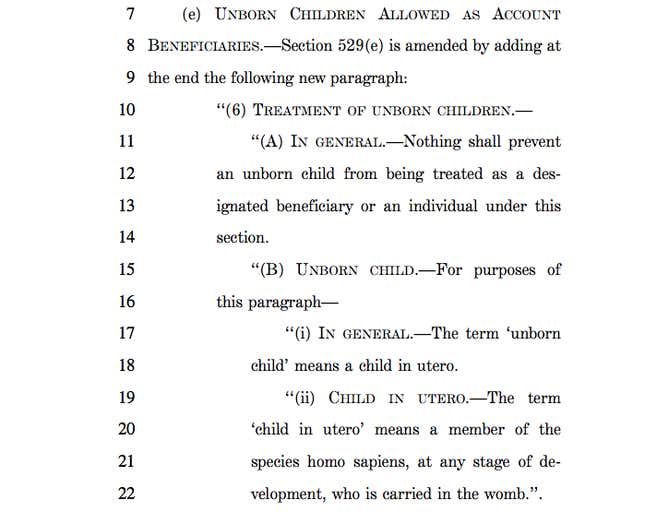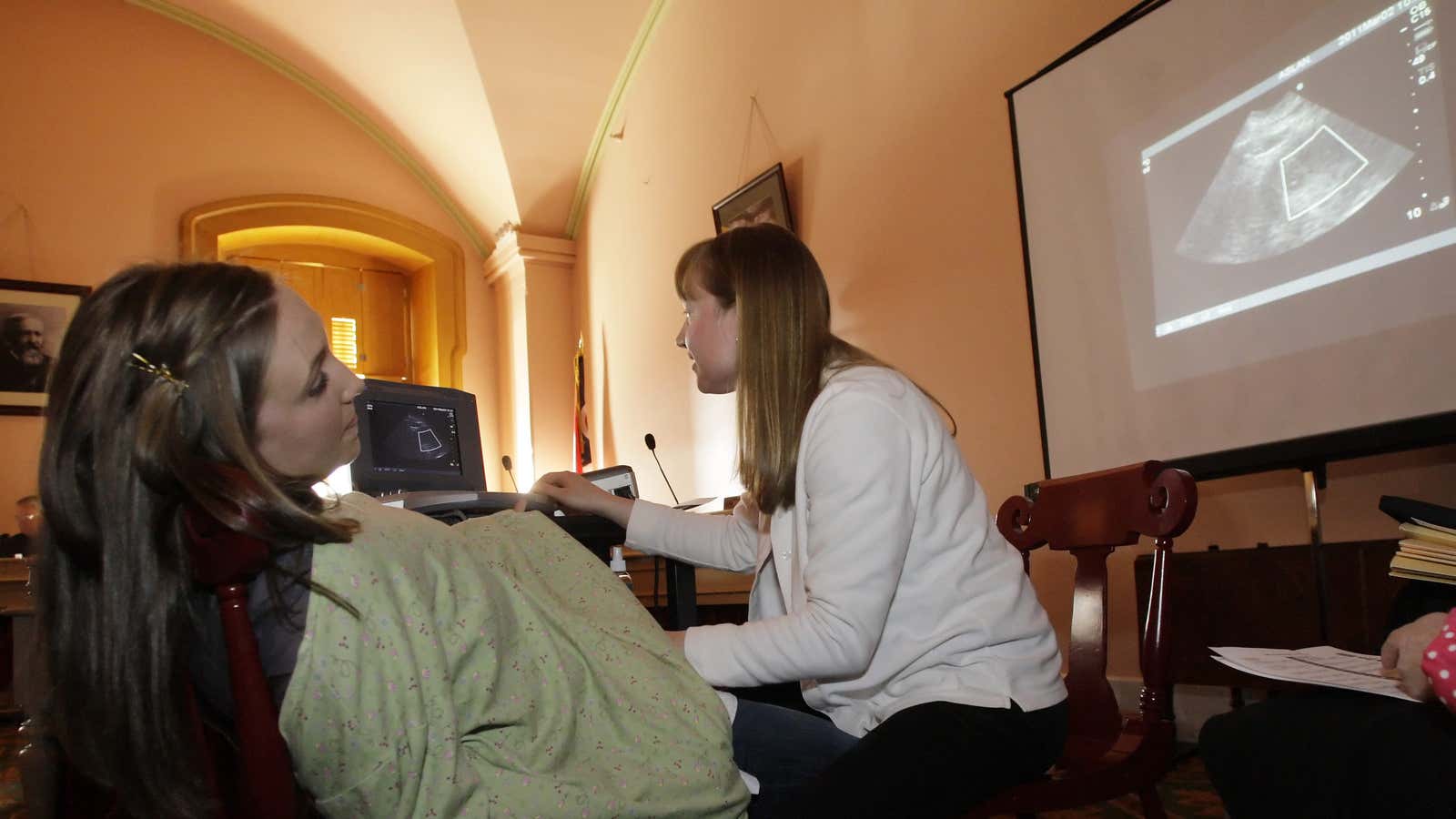The GOP tax bill, which will make rich Americans richer, and everyone else poorer, is likely about to pass in the Senate. Hidden among the tax cuts—and the provisions that help those who own golf courses and also take a whack at those who have student debt—is a short passage that could threaten women’s reproductive rights.
The bill lists “unborn children” among the allowed beneficiaries of 529 plans for college savings, breaking down the legal definition of an “unborn child” as follows:

“Nothing shall prevent an unborn child from being treated as a designated beneficiary or an individual under this section. The term ‘unborn child’ means a child in utero. The term ‘child in utero’ means a member of the species homo sapiens, at any stage of development, who is carried in the womb.”
The language here is straight out of anti-choice propaganda, adopting the concept that “personhood” begins at conception—something that does not reflect objective science. In the landmark Supreme Court case Roe v Wade, the justices in the majority didn’t accept the idea of the fetus as a person either. “The word ‘person,’ as used in the Fourteenth Amendment, does not include the unborn,” Harry Blackmun wrote.
Applying the concept of personhood to a fetus, as the tax bill does, could set a precedent in which there would be no difference, as far as 529 plans are concerned, between a fetus at any stage and a born child. This paves the way to future anti-abortion arguments, which hinge on the idea that a fetus is due the full rights of personhood.
